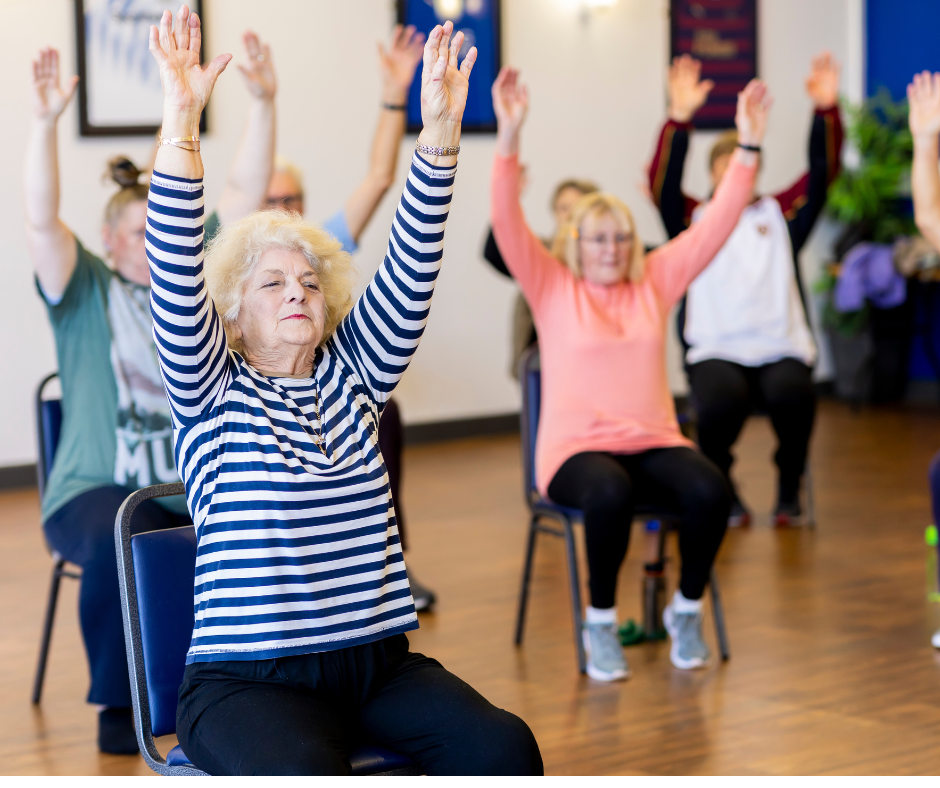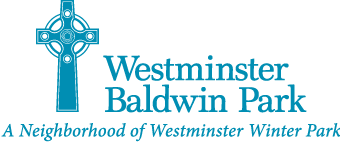The holiday season brings joy, celebration, and connection—but it can also introduce challenges to your regular wellness routine. Maintaining physical and emotional health during these busy times becomes especially important in senior living environments, where a holistic approach to wellness supports thriving through every season.
Independent Living Fitness: Balancing Activity and Rest
Physical wellness remains essential during the holidays, even as schedules fill with special events and celebrations. Many life plan communities adapt their fitness programming during this season, offering shorter, more flexible exercise options that accommodate busy calendars while still supporting cardiovascular health, strength, and mobility.
Group classes provide gentle ways to maintain movement patterns during a season when it’s tempting to become more sedentary. These brief activity periods help maintain energy levels for enjoying holiday events while supporting better sleep during a time when normal routines may be disrupted.
Equally important is creating space for rest amid increased activity. Wellness programs in senior living often incorporate mindful relaxation techniques that can be practiced in brief moments throughout the day. These micro-breaks help prevent the fatigue that can accompany a full calendar of holiday events.
Life Plan Community Dining: Nutritional Balance During a Season of Indulgence
Holiday dining presents both pleasures and challenges, with traditional foods often taking center stage at celebrations. Wellness-focused communities approach this reality with balanced strategies rather than restrictive approaches that can diminish joy during this special season.
Culinary teams in independent living dining venues often create festive menus that incorporate holiday flavors while maintaining nutritional balance. You’ll find traditional favorites offered alongside lighter options, allowing for both celebration and continued attention to health goals.
Nutrition workshops specific to holiday eating offer practical strategies for enjoying special foods mindfully. These educational programs provide tools for managing portion sizes and making thoughtful choices at holiday gatherings, supporting digestive comfort and energy management throughout the season.
Assisted Living Support: Emotional Wellness Through Connection and Reflection
The holidays can trigger complex emotions, from joy and nostalgia to grief for traditions or loved ones no longer present. Comprehensive wellness programs in assisted living and memory care settings recognize this emotional complexity and provide supportive frameworks for processing these feelings.
Group discussions create safe spaces to share both celebrations and challenges, reducing isolation for those experiencing difficult emotions. These facilitated conversations normalize the mixed feelings many experience during the holidays while strengthening community bonds through shared experience.
Mindfulness programs offer tools for staying present amid holiday busyness and managing stress responses. These techniques prove particularly valuable during a season that can sometimes trigger anxiety or feelings of being overwhelmed by sensory stimulation or social demands.
From Memory Care to Skilled Nursing: Adapting Wellness Across Different Needs and Settings
One strength of senior living communities lies in their ability to adapt wellness approaches across different levels of care and individual needs. Programs can be modified to accommodate varying cognitive and physical abilities while still promoting well-being during the holiday season.
In memory care settings, sensory-based wellness activities incorporate familiar holiday elements like seasonal scents or music in ways that provide comfort and positive stimulation without overwhelming. These thoughtfully designed programs tap into procedural memory, allowing participation regardless of cognitive challenges.
For those in skilled nursing or rehabilitation settings, wellness programming adapts to incorporate holiday themes while supporting recovery goals. These specialized approaches ensure that everyone can participate in seasonal wellness while receiving care appropriate to their current needs.
Active Independent Living: Creating Meaningful Movement Opportunities
Physical wellness during the holidays doesn’t need to revolve around traditional exercise. Many senior living communities develop movement programs that incorporate seasonal themes and cultural traditions, creating meaningful activity that feels like celebration rather than obligation.
Dance programs featuring holiday music provide cardiovascular benefits while connecting participants to cherished cultural traditions. These movement opportunities support physical health while creating joyful community experiences across all levels of physical ability.
Walking programs with seasonal themes, like lighting tours or nature observation walks, combine physical activity with holiday enjoyment. These structured opportunities help maintain mobility while providing enriching seasonal experiences that support emotional wellness through connection with nature and community.

Memory Care Approaches: Supporting Cognitive Wellness Through the Season
Cognitive stimulation remains important year-round, and many communities incorporate holiday themes into brain health programming. These seasonal adaptations maintain cognitive wellness routines while adding festive elements that enhance engagement.
Memory enhancement activities draw on holiday traditions as material for cognitive exercise, using seasonal recipes, music, or traditions as stimulating content for brain fitness. This approach makes cognitive wellness activities more relevant and engaging during this special time of year.
Creative arts programs with holiday themes provide cognitive stimulation while producing decorations or gifts. These meaningful activities support brain health through the learning of new skills while providing purposeful engagement that enhances self-esteem and community connection.
Senior Living Success: Creating Sustainable Wellness Habits
Perhaps most importantly, wellness programs in senior communities focus on creating sustainable practices that can carry forward beyond the holiday season. Rather than promoting dramatic changes or unrealistic expectations, these approaches emphasize small, consistent actions that support well-being.
Habit-stacking workshops teach techniques for incorporating wellness practices into existing holiday routines, making healthy choices more accessible even during busy times. These practical approaches recognize the importance of working with, rather than against, the realities of the season.
Community support systems provide accountability and encouragement for maintaining wellness habits throughout the holidays. From walking partners to meditation groups, these connections help sustain healthy practices when individual motivation might waver amid seasonal distractions.
The holistic wellness approach found in quality senior living communities recognizes that physical, emotional, social, spiritual, and cognitive dimensions of health remain interconnected throughout all seasons. By adapting wellness programming to accommodate holiday realities while still supporting overall health, these communities help residents enjoy the special joys of the season while maintaining the foundation of well-being that supports thriving all year long.
Westminster Communities of Florida® is a faith-based, not-for-profit organization serving older adults since 1954, with more than 7,000 residents in 22 communities. Learn more at https://westminstercommunitiesfl.org/





